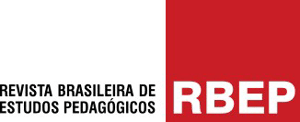Abstract:
This paper analyzes digital literacy in students entering higher education, highlighting aspects of the computational, communicative and informational knowledge. It was conducted an analytical quantitative descriptive exploratory research and, as a specific technique to collect data, a questionnaire with 12 questions was designed about aspects related to the computational, communicative and informational skill, adapted from studies by Ribeiro and Behar (2013), with fields about the profile of the participants. This study, in which 410 answers were gathered, found that there is a relation between age and the computational, communicative and informational knowledge. Younger students were more knowledgeable in the surveyed areas, according to Mann-Whitney test (p <0.05). When it comes to the places in which the research took place, was found no difference between the midwest and the northeast regions. Moreover, a knowledge of computer programs does not imply mastery of their computational tools. No correlation was found between knowing computer programs and having computational skills. Thus, eight percent of freshmen in higher education had no knowledge of computer programs and eighteen percent of the participants reported difficulties to find digital information.
Keywords:
students; higher education; digital literacy

 Thumbnail
Thumbnail
 Thumbnail
Thumbnail
 Fonte: Elaboração própria( Estatisticamente significante, Teste de Mann-Whitney, p=0,0001
Fonte: Elaboração própria( Estatisticamente significante, Teste de Mann-Whitney, p=0,0001
 Fonte: Elaboração própria.(Estatisticamente significante, Correlação de Spearman (rS=0,27), p=0,0001
Fonte: Elaboração própria.(Estatisticamente significante, Correlação de Spearman (rS=0,27), p=0,0001